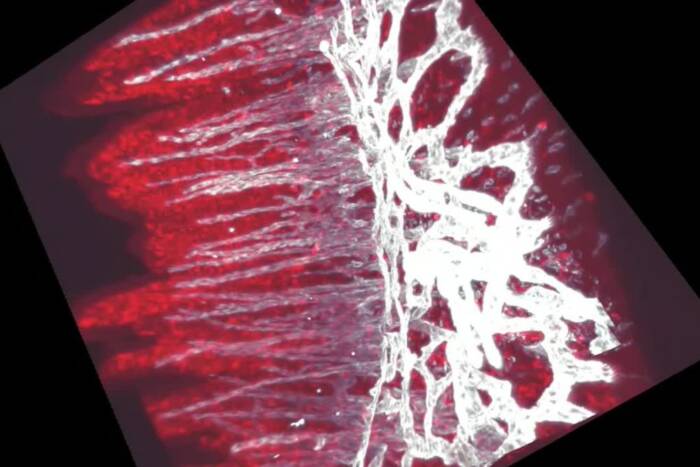Donald W. Pfaff and Bruce S. McEwen will share 2010 Fondation IPSEN Neuronal Plasticity Prize
Two Rockefeller University scientists, Donald W. Pfaff and Bruce S. McEwen, have been named recipients of the 2010 Fondation IPSEN Neuronal Plasticity Prize for their studies on the neuroendocrine control of behavior. They share the prize with Thomas R. Insel, director of the National Institute of Mental Health. The French foundation presents the award to researchers who publish remarkable, pioneering studies.
Pfaff uses neuroanatomical, neurochemical and neurophysiological methods to study the cellular mechanisms by which the brain controls behavior. His laboratory’s research activities have focused on steroid hormone effects on nerve cells as they direct natural, instinctive behaviors, as well as the influences of hormones and genes on generalized brain arousal.
Pfaff, professor and head of the Laboratory of Neurobiology and Behavior, is known for discovering exact cellular targets for steroid hormones in the brain. He found a hormone-sensitive system of hypothalamic and limbic forebrain neurons in rodents that was later shown to be present in species ranging from fish to primates. This apparently is a general feature of the vertebrate brain, and Pfaff recently found that knocking out the gene for the estrogen receptor in animals prevents female reproductive behavior. Pfaff’s lab also worked out the neural circuitry for hormone-dependent female reproductive behavior, the first behavior circuit elucidated for any mammal. He and his colleagues have demonstrated that estrogens can turn on several genes in the forebrain. Taken together, these lines of evidence showed exactly how chemical changes in specific neurons regulate a complete mammalian behavior.
Pfaff is a member of the National Academy of Sciences and a fellow of the American Academy of Arts and Sciences. The author of several books on the brain and behavior, he received the 2005 Award for Excellence in Professional and Scholarly Publishing (medical science category) of the Association of American Publishers for his recent book, Brain Arousal and Information Theory.
McEwen is Alfred E. Mirsky Professor and head of the Harold and Margaret Milliken Hatch Laboratory of Neuroendocrinology. He studies the cellular and molecular mechanisms underlying the effects of stress and sex hormones on neurogenesis, synaptogenesis and dendritic remodeling in the hippocampal region of the adult and developing brain. The hippocampus is a key structure involved in the formation of episodic, spatial and contextual memories, and it is one of the first brain structures to show degeneration in Alzheimer’s disease.
Work by McEwen and his colleagues has shown that in the hippocampus, chronic stress causes neurons to undergo a remodeling of dendrites, changes that are largely reversed once the stress is removed, at least in young adult animals. His laboratory has extended these studies on the hippocampus to the prefrontal cortex and the amygdala, two other brain areas important for memory as well as emotional control. Both of these brain areas respond to chronic stress by remodeling of neurons — growth of some types of neurons and shrinkage of others.
McEwen also has been a proponent of the concept of allostatic load, a term he coined in 1993. The concept explains how chronic exposure to the body’s stress response — a very helpful response to acute threats — also takes a toll on many organs, including the cardiovascular system, the immune system and the brain.
McEwen is a past president of the Society for Neuroscience. He is a member of the National Academy of Sciences, the American Academy of Arts and Sciences and the Institute of Medicine. In 2009, he received the Gold Medal award from the Society for Biological Psychiatry. He is co-author of two books: The Hostage Brain (with Harold M. Schmeck) and The End of Stress as We Know It (with Elizabeth Norton Lasley).
The IPSEN Prize will be presented at a symposium at the 7th Forum of European Neuroscience in Amsterdam on July 4.


